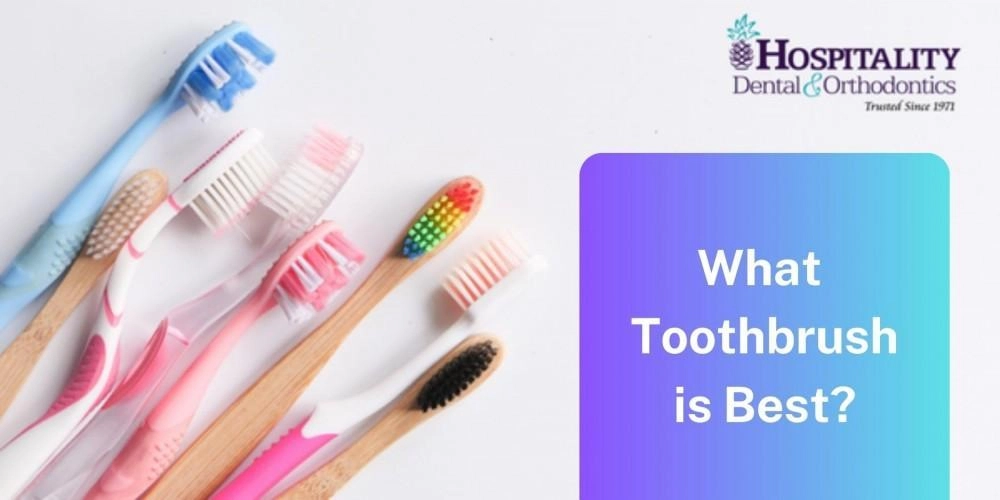
Feeling overwhelmed by countless colorful rows of toothbrushes at the store? Or perhaps you have a trusted brand and type but wonder how effective it really is.
Either way, you’re wondering “what type of toothbrush is best?” As a dental practice, we hear this question often from patients.
The short answer: the best kind of toothbrush for your teeth is one that has soft bristles and a comfortable handle that allows you to reach all areas of your mouth easily.
Many people think that toothbrushes with tough, rigid bristles are more effective because they create more friction. After all, you’d use the rough side of the sponge to remove a stubborn spot on the countertop.
However, your teeth don’t work like your kitchen surface at home. You don’t want to scrub away everything—just the plaque and food. You’ll risk damaging your enamel (your protective coating) if the toothbrush is too coarse.
Soft-bristled toothbrushes are ideal because they are gentle on your gums and teeth and can effectively remove debris without causing damage.
Toothbrush size and shape also matter. The toothbrush head should be appropriate for your mouth and teeth. So, a smaller toothbrush head is better for people with smaller mouths, while a larger head may be more suitable for those with larger mouths.
When you’ve found a good toothbrush, you’ll still want to routinely replace it. We recommend switching it out every three to four months or when the bristles become frayed. Worn-out, misshapen bristles can be less effective at cleaning your teeth and can harbor bacteria.
Ultimately, a good toothbrush doesn’t need to be expensive, and we woudn’t endorse one particular type or brand. It should just be strong enough to scrub and not so tough it scrapes.
Still have questions? Consult with your dentist or dental hygienist for personalized recommendations.
